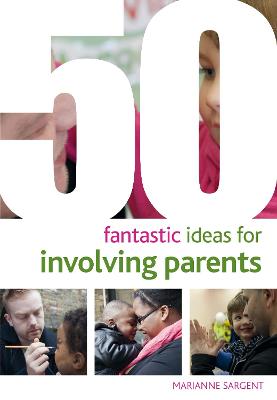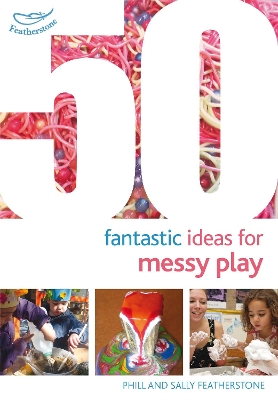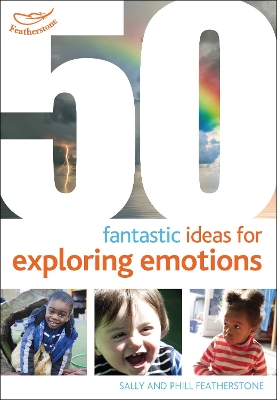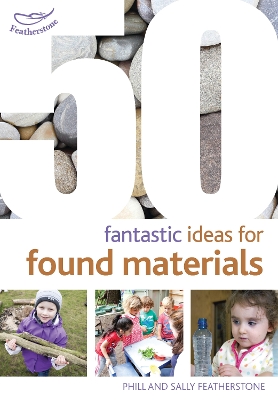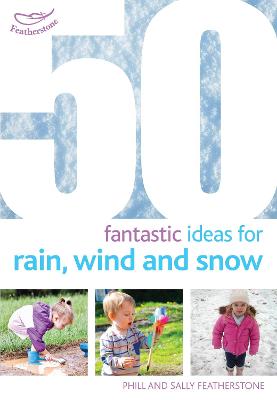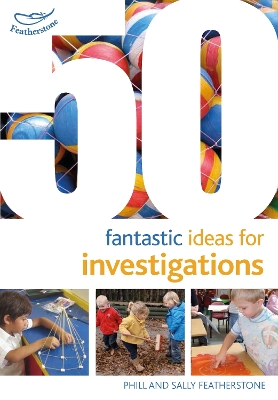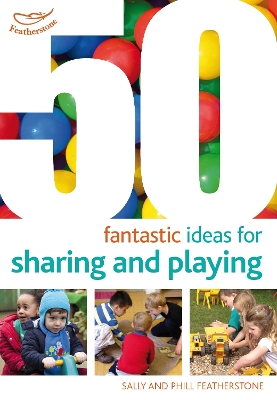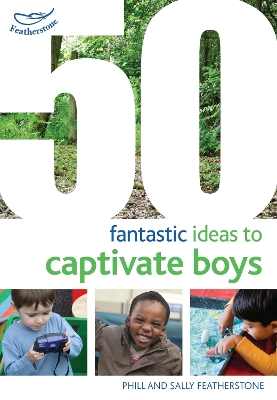50 Fantastic Ideas
8 total works
50 Fantastic ideas for Involving Parents
by Sally Featherstone and Phill Featherstone
Practitioners can dip into the book and choose simple ideas ranging from supporting parents during the induction period, involving them in curriculum development and helping them to support their children's learning at home. Each idea comprises: a list of resources needed; step-by-step instructions on how put the idea into action; suggestions for how to extend the idea; and how the idea is beneficial to parents.
Practitioners and teachers in the early years are always looking for new ideas for messy and 'hands-on' play, and this book will give children many opportunities for exploration and investigation through sensory play.
50 Fantastic ideas for Exploring Emotions
by Sally Featherstone and Phill Featherstone
This book offers you fifty short starter sessions with interesting ideas for follow up, each one focused on a different aspect of emotional development. The activities will help children to understand, explore and manage their own emotions and those of others through discussion, observation, stories, songs and movement. Try some of these engaging activities and ensure that the children you work or live with become emotionally intelligent.
This book gives you 50 ideas for using free, cheap and recycled materials in your setting, both for creative and independent play and for specific projects. The resources suggested are all easily available, and the ideas are only starters for the continuing interest children have in this sort of work.
This book offers you 50 ideas for simple activities to do in the rain, wind or snow (and in fog, frost, mist and sunshine!). The ideas may not all be new to you, some are revivals of old favourites, but they are all easy to prepare, mostly using resources readily at hand on your home or setting, collected in one place and ready for you to use.
50 Fantastic Ideas for Investigations
by Sally Featherstone and Phill Featherstone
Simple observations can turn into early science, technology and creative thinking. Using familiar and easily found objects, the investigations will involve and encourage children to develop these thoughts.
50 Fantastic ideas for Sharing and Playing
by Sally Featherstone and Phill Featherstone
But we must resist the temptation to think that boys are not as good as girls - they are just different. Their skills and interests draw them to activities that are big, adventurous, risky and messy, and of course, they love being outside. All children like pretend play, but this is sometimes limited to domestic activity in the home corner, rather than allowing boys to experiment with roles often associated with grown up men.
This book offers you fifty ideas for things that make the most of the ways boys learn, capturing their interest and helping them to learn. Many offer opportunities for early writing, mathematics and reading, as well as technology, science and role-play.
